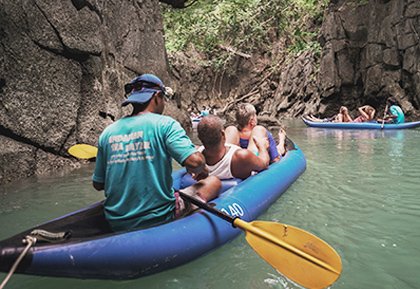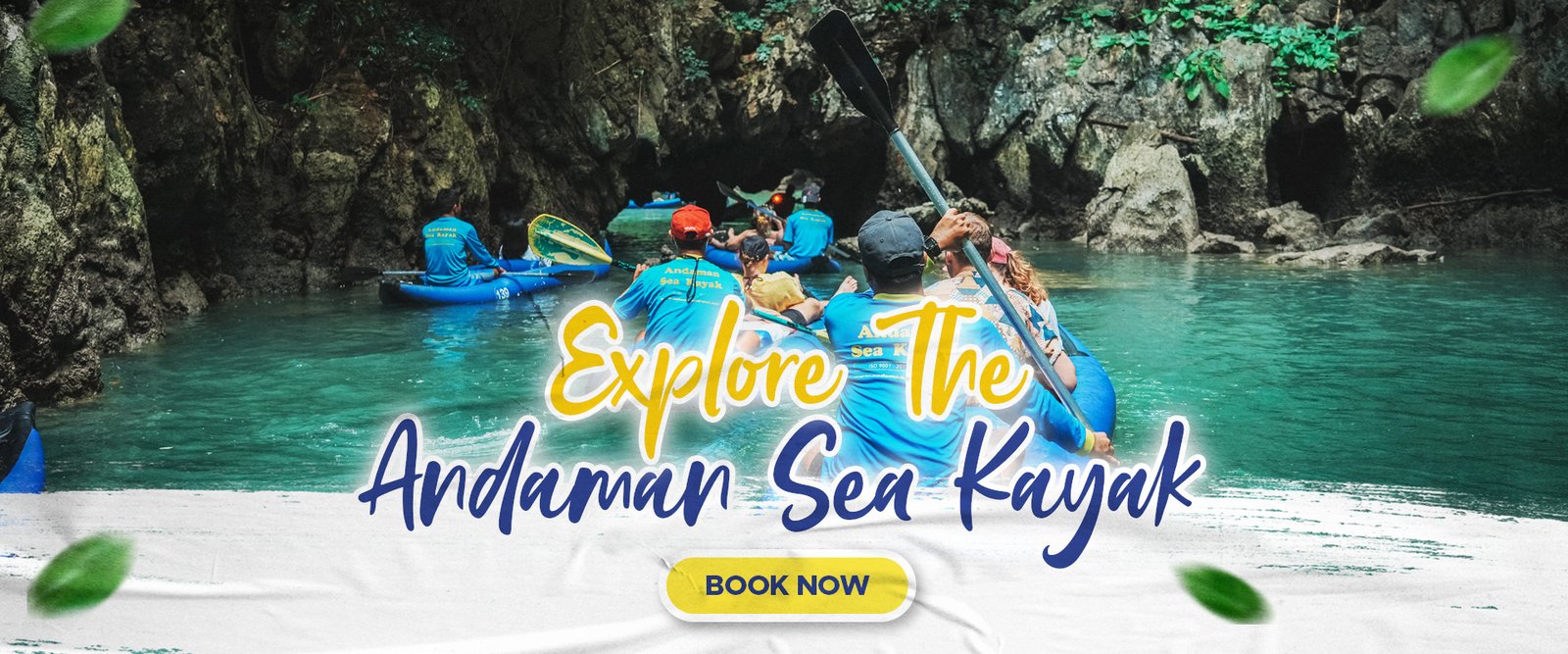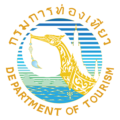How Kayaking in Phang Nga Bay Changed My Perspective on Nature

There are few places on Earth where nature feels as untouched and awe-inspiring as Phang Nga Bay in Thailand. Known for its towering limestone cliffs, emerald-green waters, and hidden sea caves, this iconic bay is a paradise for nature lovers. But it wasn’t until I embarked on a sea kayaking adventure through these breathtaking landscapes that I truly understood the power of nature and the urgent need to protect it.
This experience didn’t just offer stunning scenery; it changed my perspective on the delicate balance between tourism and conservation. In this article, I’ll share how kayaking in Phang Nga Bay deepened my appreciation for nature and taught me valuable lessons about sustainability, biodiversity, and the importance of preserving our planet’s most precious places.
The Magic of Phang Nga Bay: A Natural Wonder
Phang Nga Bay, located between Phuket and Krabi, is a UNESCO-listed site and one of Thailand’s most famous natural attractions. Spanning over 400 square kilometers, the bay is home to over 40 limestone islands, hidden lagoons, and mangrove forests.
One of its most famous landmarks is James Bond Island (Koh Tapu), made famous by the 1974 movie The Man with the Golden Gun. But beyond the tourist hotspots, Phang Nga Bay offers a deeper, more immersive experience—especially when explored by kayak.
Why Kayaking is the Best Way to Explore Phang Nga Bay
Unlike speedboats and large tour groups, kayaking allows you to move silently through the water, blending in with the natural surroundings. You can paddle into narrow caves, glide through quiet mangrove forests, and witness wildlife up close—without disturbing the ecosystem.
This slower, eco-friendly approach gives you time to fully appreciate the bay’s raw beauty and listen to the sounds of nature, from the calls of exotic birds to the gentle splash of water against the limestone walls.
A Close Encounter with Wildlife: A Lesson in Respect
One of the most unforgettable moments of my trip was paddling through a hidden lagoon, known as a “hong” (the Thai word for “room”). These collapsed cave systems, only accessible by kayak, reveal a secret world untouched by time.
As I entered the hong, the air was filled with the chirping of birds and the rustling of monkeys in the trees above. Below, I could see colorful fish swimming in crystal-clear waters, and occasionally, a monitor lizard would appear on the rocky shoreline.
Seeing these creatures in their natural habitat made me realize how fragile their world is. I began to understand that as visitors, we have a responsibility to observe, not disturb. Too often, human activity disrupts wildlife, but kayaking in Phang Nga Bay taught me the importance of coexisting with nature rather than exploiting it.
The Power of Silence: Connecting with Nature on a Deeper Level
One of the most profound experiences of kayaking in Phang Nga Bay was the silence.
Without the noise of engines or the distractions of modern life, I was fully present in the moment. I could hear the wind rustling through the mangroves, the occasional splash of a jumping fish, and even the distant sound of waves crashing against the limestone cliffs.
This silence gave me a newfound appreciation for the delicate balance of the ecosystem. It reminded me of how human activity—deforestation, pollution, and over-tourism—can disrupt this harmony.
A Lesson in Sustainability: The Impact of Responsible Tourism
Phang Nga Bay is a prime example of how tourism can be both beneficial and harmful.
On one hand, tourism brings income to local communities and raises awareness about conservation. On the other hand, mass tourism has led to pollution, coral damage, and habitat destruction.
During my kayak tour, our guide emphasized the Leave No Trace principle:
✅ No littering – Even biodegradable waste like fruit peels can disrupt the ecosystem.
✅ No single-use plastics – Bringing reusable water bottles and avoiding plastic bags is encouraged.
✅ No touching wildlife – Observing from a distance ensures animals remain undisturbed.
These small actions make a significant difference. Seeing the impact of sustainable tourism firsthand made me more conscious of my travel habits, not just in Thailand but wherever I go.
How This Experience Changed My Perspective on Nature
Kayaking in Phang Nga Bay was more than just an adventure—it was an eye-opening journey that reshaped my relationship with nature. Here’s what I took away:
1. Nature is More Powerful Than We Realize
Seeing towering limestone formations carved by millions of years of erosion reminded me that nature has its own timeline. It exists beyond human control and must be respected.
2. Conservation is Everyone’s Responsibility
Whether we’re travelers, business owners, or local communities, we all play a role in preserving natural wonders like Phang Nga Bay.
3. Slowing Down Helps Us Appreciate the World More
Kayaking forced me to slow down and observe the details I would have missed on a fast boat tour—the patterns in the rock formations, the way the light reflects off the water, the delicate movements of wildlife.
4. Tourism and Conservation Can Coexist
With responsible practices, tourism can contribute to conservation rather than harm it. Supporting eco-friendly tours and ethical operators ensures that places like Phang Nga Bay remain pristine for future generations.
Final Thoughts: Why You Should Experience Kayaking in Phang Nga Bay
If you’re planning a trip to Thailand and want an experience that goes beyond the typical tourist activities, kayaking in Phang Nga Bay is a must. It’s an adventure that will leave you not only in awe of nature’s beauty but also more aware of its vulnerability.
This journey changed the way I see the world. It made me more conscious of my actions and the impact they have on the environment. And most importantly, it reminded me that nature is not something we own—it’s something we are privileged to experience and protect.
So, if you ever find yourself in Phang Nga Bay, grab a paddle, leave no trace, and let nature change your perspective too. 🌿🚣♂️🌊







